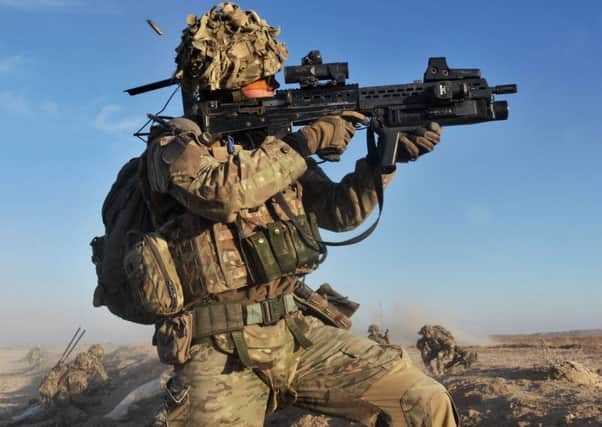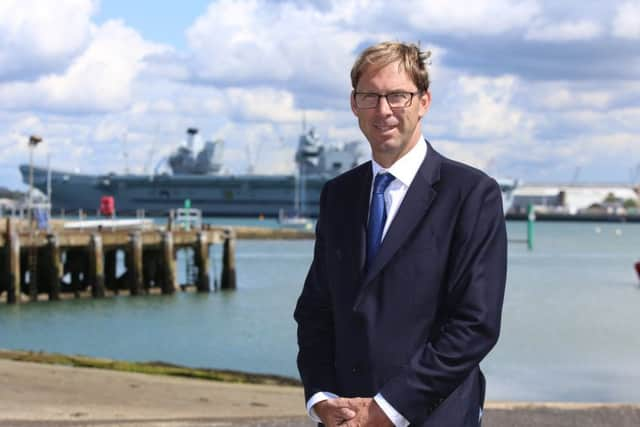Top military doctor denies veterans leave the forces with undianosed mental health issues


Lieutenant General Martin Bricknell, surgeon general of the armed forces, admitted the nation’s military mental health workforce was short of staff.
But during a hearing of the defence committee, the top officer denied the struggle to recruit health care professionals was causing service personnel to slip under the radar when they left the military.
Advertisement
Hide AdAdvertisement
Hide AdQuizzed on whether people were leaving the forces with serious undiagnosed conditions like post traumatic stress disorder, Lt Gen Bricknell said: ‘Absolutely not. Anybody who has got a major diagnosed health condition will be seen by a mental health professional as they’re being diagnosed.’


But the military chief did tell the committee: ‘At the moment were are not fully manned for our mental health workforce both on the regulatory component and civilian component.’
Lt Gen Bricknell said 79 per cent of the total manpower needed to run the mental health service had been achieved.
The remaining void, he said, was filled by staff hired privately from external contractors.
Advertisement
Hide AdAdvertisement
Hide AdThe officer’s comments come amid on-going concerns about the support provided for military veterans traumatised by war.
Last month, calls were issued from Portsmouth demanding the government did more to help retired servicemen and women battling mental health issues.
It followed the death of Afghanistan special forces hero, Danny Johnston, who served with the Princess of Wales’s Royal Regiment – Hampshire’s local army unit – before joining the Special Reconnaissance Regiment, the sister unit of the SAS.
Mr Johnston had disappeared from his family home in Bognor before his body was found in woodland a few days later near Chichester.
Advertisement
Hide AdAdvertisement
Hide AdSpeaking at the committee hearing, veterans minister Tobias Ellwood said he was concerned about the staffing levels of the MoD’s internal health network and said he was looking at efforts to boost recruitment.
As well as improving the situation within the MoD, the retired army Captain stressed the nation still needed to debunk the myth that veterans are ‘mad, bad and sad’: ‘They are not. They make a vital contribution to our society.’
Speaking on what the government was doing, Mr Ellwood added: ’We are not complacent, we recognise that those who experience mental health issues deserve the very best care and attention.
‘We have a moral obligation and duty of care to service personnel and their families as its enshrined in the armed forces covenant.
Advertisement
Hide AdAdvertisement
Hide Ad‘But it’s also important to place this overview of mental health into context because it has long been misunderstood. It has been left in the shadows, considered an unacceptable stigma and seemed secondary to physical health – indeed, a third of us are likely to experience some form of mental health issue in our lifetimes.’
Lt Gen Bricknell said there had been a rise in the recorded numbers of service personnel diagnosed with mental health issues between 2010 and 2013. But since 2013 this had plateaued at about three per cent of the total force.
Six per cent of veterans with mental health problems are diagnosed with PTSD compared to about 4.2 per cent in the general population.
Kate Davies, director of health and justice, armed forces and sexual assault services commissioning with NHS England, said: ‘There are two million veterans in England and 2.6m in the UK. The evidence shows us that ex-serving personnel have the same level of mental health needs than the general population.’
Advertisement
Hide AdAdvertisement
Hide AdPlans were this week revealed to open a new retreat for traumatised veterans in Fort Cumberland, in Eastney.
If approved by Historic England, veterans will be able to camp out at the historic fort to help their recovery, with specially-trained support staff on hand,